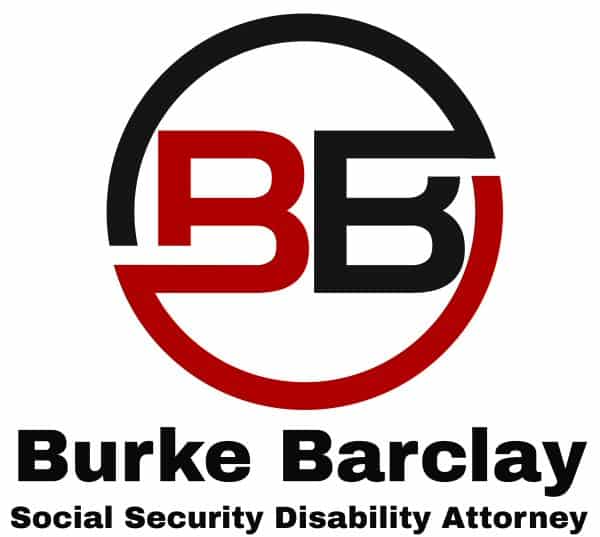You May Have A Severe Condition But Not Be Disabled
You May Have A Severe Condition But Not Be Disabled.
The reality of being found disabled by the Social Security administration is more complex than having a severe condition. While one of the requirements is that your condition be severe enough to disrupt your ability to work, partake in daily activities, do chores around your home, etc. There are essentially three more requirements that must be fulfilled.
First, you have to satisfy Step One in a five-step process. In order to move past this requirement, you have to either have stopped working or at least reduced your work to the point where you are not earning more than $1,130.00 per month gross. If you have stopped working, then you can satisfy this requirement after overcoming the five-month short-term disability period. If you are still working, make sure you reduce your hours or pay to fulfill this requirement.
Second, you have to be expected, at the very least, to have your condition for a year or more. Now, while you do not have to wait for twelve months before filing your claim, your condition does have to be at least severe enough to at least seem as though it will last for at least one year. Further, your condition must be severe, as stated above, enough to disrupt your ability to engage in basic work activities. If your condition, or combination of conditions is only considered to be moderate or minimally interfere with your ability to work, you will not pass Step Two in the determination process and your case essentially ends here.
However, if you can overcome Step One and Step Two, the Social Security Administration moves forward with its determination as to whether or not you are disabled. Here, there is a Step Three, which determines if your illness or condition(s) meets one of their medical listing requirements But, this is often too high of a hurdle for most people to overcome, so they are generally allowed to move onto Step Four and Step Five.
At Step Four, Social Security looks back fifteen years from the time in which you alleged you are or were disabled, and determines whether or not you can return back to any of the jobs you have performed in the past. This is a very simple determination (considering how complicated this process is), and if you are able to physically or mentally perform at one of your past jobs, then your case ends here. But, if there is a determination that you cannot perform past work, then you are allowed to move on to Step Five.
Step Five is usually where the Claimant either slays the proverbial dragon or looses his or her quarter and must start the game over again. It becomes even more difficult when Social Security determines that even if you had been a computer programmer in the past, you would be likely able to be a Silver Polisher or a Security Camera Monitor.
What frustrates people most at this stage is that the Administration can become quite imaginative in what job a person would be capable of performing even in spite of his or her severe condition. Many a hard fought battle to secure benefits has ended just in front of the finish line with a determination that the person is capable of becoming an Almond Blancher.
So, as you can see, just because you have a severe condition, this does not mean you will be found disabled. For starters, as people age, they become more eligible to file for Social Security disability benefits. For those at least over the age of fifty-five, the Administration feels as though there would be less and less jobs available for them to perform within the national economy. At age sixty and above, there are even special rules applied to make the chances of receiving disability benefits that much more feasible.
So, what can the average thirty-five year old with a college education do when needing to file for disability benefits? First, be sure and have detailed medical records laying out what restriction his or her condition has on the ability to walk, stand, sit, use their hands, keep pace with a normal work week, etc. The more restrictions on your ability to do basic work activities, the less likely Social Security will be able to determine you are capable of performing at some type of entry-level position that requires little training.
Further, make sure you continue going to the doctor. But, not just any doctor will do. If you can find a way, go to a doctor that specializes in treating your condition. The reason this is so important, is because Social Security will give what it calls “controlling or great weight” to his or her determination of your restrictions. The more you can seek treatment from a specialist, the better chances you will have at a successful claim.
Finally, it is also important to understand that at its very essence, Social Security is using a complicated formula to determine whether or not you are disabled. Most of the time and unless you meet a medical listing of your impairment, there is a determination of what the Administration calls your “residual functional capacity.” While this may seem to complicate matters even more, this is essentially a determination of your maximum physical and mental abilities.
Here, the Administration is attempting to find that even despite your severe condition, what is your ability to walk, sit, stand, use your hands, following basic instructions, etc.? After making this determination, Social Security will then determine whether you are capable or incapable of performing some type of simple basic work. If you can do an entry-level job that requires little or no training, even though your condition is severe, then you are not disabled. If you cannot, then you will be found disabled after satisfying Steps One, Two, and Four.
You Need an Experienced Social Security Disability Lawyer
We represent claimants fighting for their Social Security disability benefits throughout Texas and California. Contact the Law Office of Burke Barclay for a highly experienced Social Security Disability Lawyer in Dallas, Texas
"Experienced Social Security Disability Lawyer representing clients throughout the United States who either need to initially file for their Social Security disability benefits or have been denied at one of the various stages throughout the process to give them the best chances of success."
Business Address
3838 Oak Lawn Ave.
Suite 1000
Dallas, TX 75219
Business Phone
Business Hours
Monday - Friday
8:00 AM - 5:00 PM





